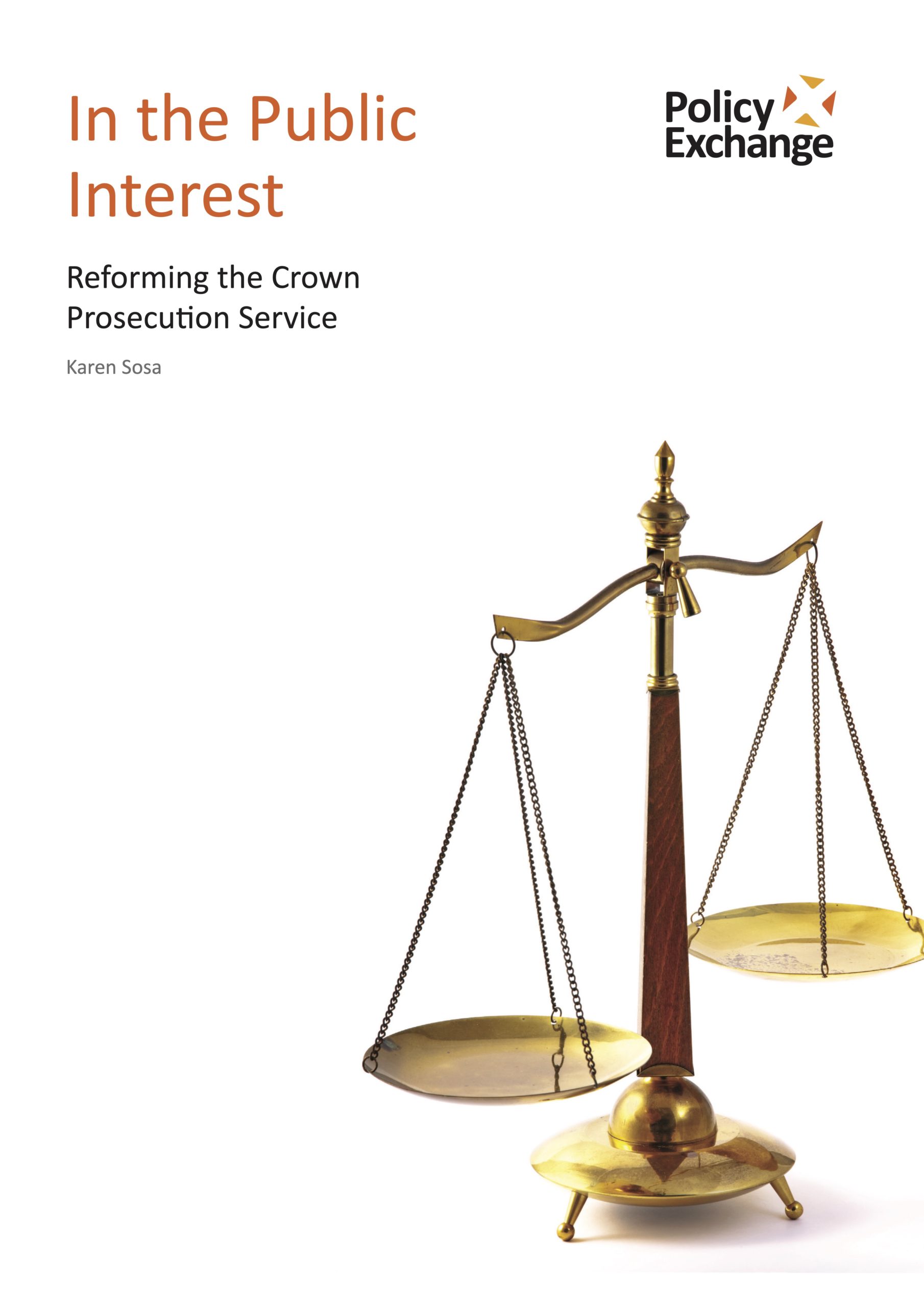
In the Public Interest: Reforming the Crown Prosecution Service
Over 88,000 criminal cases – one in ten – that were charged were later dropped by the Crown Prosecution Service (CPS) in 2011/12 due to a lack of evidence or because prosecution was deemed not to be in the public interest. This cost the taxpayer over £25 million, wasted valuable police time and had an extremely detrimental impact on the victims of crime.
In the Public Interest explores the role and responsibility of the CPS. It says the prosecution service should retain its powers but calls for more transparency and accountability when it comes to measuring the organisation’s successes and failures.
New statistics contained within the report found:
- The annual budget for the CPS amounts to over half a billion pounds yet it’s handling the smallest caseload of the past decade.
- The official conviction rate masks deep failings in the CPS’ performance in court. When prosecutions reached trial, the CPS had successful outcomes in only 63% of Magistrates’ Court cases and in just over half of its Crown Court cases (55%).
- In 2011, one third of cracked or ineffective trials in England and Wales were the result of the prosecution failing to offer evidence, not being ready, or a prosecution witness being absent
- Of the 367,067 cases given to the CPS for pre-charge decisions, one in four were dropped, most frequently because of insufficient evidence. This feeds an undercurrent of mistrust between the police and the CPS which sometimes spills out into the media.
The report also suggests the need for a revised Public Interest Test that that accurately reflects the public’s view of when a prosecution should be dropped. In 2011, the CPS decided not to prosecute 109 out of the 139 suspects who broke into Fortnum & Mason during the student protests in London in 2011, on the grounds that they did not want to ‘criminalise’ the young people involved
The report says that there is an urgent need for the CPS to become more professional, more accountable and more visible.
Recommendations include:
- Guilty pleas should be excluded from the headline performance metric for convictions achieved by the CPS at trial.
- The proportion of cracked ineffective trials attributable to a prosecution failing must become a key performance measure of the CPS.
- The CPS should allow the police to prosecute the majority of cases for which the police have prosecutorial powers, such as motoring offences and some low-level summary cases.
- The police should have the ability to appeal to a judge or panel of magistrates if they think the CPS were wrong to have dropped a case in the public interest.
Karen Sosa, author of the report, “The CPS has made great strides over the last 15 years, but it must continue to improve in order to ensure that the public is served by a competent and effective prosecution service.
“Dropped prosecutions, unsuccessful prosecutions, and cases abandoned pre-charge continue to plague the CPS, to the dismay of the public and the police. In addition, Chief Crown Prosecutors are too often invisible in their local communities, and the Director of Public Prosecutions is only tenuously accountable to Parliament.

